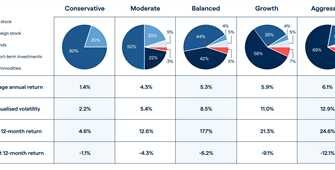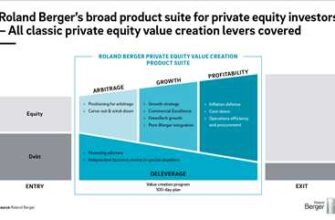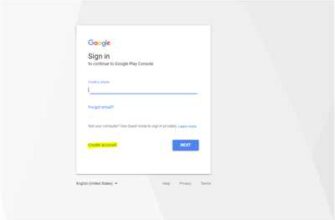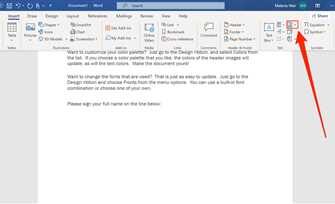
If you want to develop an Android application, you need to know the native language for Android development, which is Java. However, there is now more than one way to develop Android apps. Kotlin has become a widely adopted language for Android development, allowing developers to write cleaner and more concise code.
Before getting into the details of Android development, it’s important to learn the basics of Java or Kotlin. There are many online sources and communities that offer tutorials and courses to help you get started on your Android development journey.
In the past, Android app development was done through the Android SDK, which was developed by Google. However, Google has now introduced Android Jetpack, a set of libraries, tools, and guidelines for developing Android apps. These libraries provide a simplified way to develop Android applications, making it easier for developers to create high-quality apps.
One of the main advantages of Android development is the open-source nature of the platform. This means that developers have access to a vast array of tools and resources to enhance their development process. The Android community is very active and there are always new and exciting things happening in the Android development space.
In conclusion, to start Android development, it’s important to learn the native language and explore the various tools and libraries available. Whether you choose Java or Kotlin-first approach, make sure to take advantage of the resources and communities that are available to you. Android development is a rapidly growing field, and with the right knowledge and skills, you can create amazing apps that reach across the world.
How to Develop an Android App: 5 Things to Know Before Starting
Android is a popular mobile operating system developed by Google and based on the Java programming language. With the introduction of Kotlin, an open-source programming language by JetBrains, Android app development has become even more accessible and efficient. If you are interested in learning how to develop an Android app, there are a few things you should know before getting started.
1. Kotlin-First Development: Google has officially announced Kotlin as the preferred language for Android app development. Kotlin is a modern, concise, and expressive language that helps developers write cleaner code and reduces boilerplate. It seamlessly integrates with existing Java code, making it easy for developers to transition into Kotlin-based application development.
2. Learn the Tools: Google has developed a wide array of tools and resources to facilitate Android app development. Android Studio, the official Integrated Development Environment (IDE), provides a rich set of features for designing, debugging, and testing Android apps. Additionally, the Android Development Toolkit (ADT) plugin for Eclipse is also available for developers who prefer using Eclipse as their IDE.
3. Jetpack: Android Jetpack is a suite of libraries, tools, and guidance to help developers write high-quality apps more easily. Jetpack components are designed to work well together and simplify the development process. It provides solutions for common challenges such as backwards compatibility, lifecycle management, and UI development.
4. Understand Android Architecture: Android apps are built on a layered architecture that consists of different components like activities, services, content providers, and broadcast receivers. Understanding these components and how they interact with each other is essential for developing robust and efficient Android apps.
5. Join the Android Community: The Android development community is one of the most active and supportive communities in the world. There are numerous online forums, communities, and Stack Overflow, where developers can ask questions, seek help, and share their knowledge and experiences with other developers. This community is a valuable resource for learning and staying up-to-date with the latest trends and best practices in Android app development.
In conclusion, before diving into Android app development, it is crucial to familiarize yourself with Kotlin and the tools provided by Google. Understanding the Android architecture and staying connected with the Android development community will also greatly enhance your learning and development process. By following these five things to know before starting, you will be well-equipped to develop your own Android apps and contribute to the ever-growing world of mobile applications.
| Things to Know Before Starting: |
|---|
| Kotlin-First Development |
| Learn the Tools |
| Jetpack |
| Understand Android Architecture |
| Join the Android Community |
Kotlin for Android
If you’re starting your journey into Android development, it’s important to know that Kotlin has become the preferred language for Android app development. Kotlin is a modern, concise, and expressive programming language that was introduced by JetBrains. Google has officially supported Kotlin for Android development since 2017, making it more accessible and widely used by the Android community.
Kotlin offers many advantages over Java for Android development. It is a statically typed language that is completely interoperable with Java, meaning that you can freely use Java code and Kotlin code together in the same project. Kotlin also offers improved null safety, concise syntax, and advanced language features like extension functions and coroutines, which make it easier and more enjoyable to develop Android applications.
One of the key benefits of using Kotlin for Android development is its seamless integration with the Android development ecosystem. Kotlin can be seamlessly integrated into existing Java-based Android projects or be used to develop new projects from scratch. If you’re starting from scratch, you can use tools like Android Studio to create a new Kotlin-first project or convert an existing Java project to Kotlin through automated conversion tools.
Developing Android apps with Kotlin gives you access to a rich set of tools and libraries provided by Google, such as the Android Jetpack libraries. These libraries provide a set of pre-built components and architectural guidance to help you build robust and high-quality Android applications. By using Kotlin and Jetpack together, you can take advantage of their combined power and build amazing applications with less boilerplate code.
When it comes to learning Kotlin for Android development, there are many online resources and communities available to help you get started. You can find tutorials, blogs, videos, and documentation from various sources like Google’s official documentation, Stack Overflow, and Kotlin’s official website. These resources will guide you through the basics of Kotlin, as well as provide practical examples and best practices for Android development.
In conclusion, Kotlin is the language of choice for Android development. It offers a modern and concise syntax, seamless integration with the Android ecosystem, and access to powerful tools and libraries. Whether you’re starting a new project or converting an existing one, Kotlin will enable you to develop Android applications more efficiently and effectively.
Tools

When starting Android development, it is important to familiarize yourself with the tools that are available to you. Android development is primarily done in Java, a native language for the Android platform. However, there are also tools and frameworks available that allow you to develop Android apps in other programming languages such as Kotlin.
If you are new to Android development, it is recommended to start with Java as it is the most widely used and well-documented language for Android app development. There are also many online resources and communities available to help you learn and navigate through the development process.
Google provides a set of tools called Android Studio, an integrated development environment (IDE) specifically designed for Android development. Android Studio is based on IntelliJ IDEA and includes everything you need to develop Android apps, from the code editor and debugger to the emulator and performance analysis tools.
In addition to Android Studio, there are other tools available that can help streamline your development process. For example, Kotlin is a programming language developed by JetBrains that is now officially supported by Google for Android app development. Kotlin offers many advantages over Java, such as null safety, concise syntax, and better interoperability with existing Java code.
Another helpful tool is Jetpack, a set of libraries, tools, and architectural guidance provided by Google to help you build high-quality Android apps. Jetpack includes components such as LiveData, ViewModel, Navigation, and Room, which make it easier to handle data, navigate between screens, and work with databases.
Furthermore, there are many open-source libraries and frameworks available that can help you develop Android apps more efficiently. One example is ButterKnife, which simplifies view binding and reduces boilerplate code. Another example is the OkHttp library, which provides a simple and efficient way to make network requests in your app.
In conclusion, before you start developing an Android app, it is important to know the tools available to you. Android Studio, Kotlin, and Jetpack are just a few examples of the tools that can help you in your Android development journey. Explore these tools and more to make your development process smoother and more efficient.
Conclusion
In conclusion, starting Android development can be a daunting task, but with the right resources and tools, it is definitely achievable. By learning Kotlin, you open up a whole new world of possibilities for developing Android apps. With Google’s support and the strong Kotlin community, you can easily learn and develop native Android apps.
Before you dive into developing apps, make sure to familiarize yourself with the Android development environment and the various tools available. The Android Jetpack, which is a set of libraries and tools, will help you develop high-quality apps with ease. Knowing how to use the Jetpack components will make your development process more efficient and organized.
As you develop your app, keep in mind the different screen sizes and device orientations that your app will be used on. Design your app’s UI to be responsive and adaptive to ensure a seamless user experience across devices.
Additionally, Google’s official documentation and online resources such as Stack Overflow are great sources of information and guidance as you encounter challenges during the development process. Don’t hesitate to reach out to the Android developer community for help and advice.
In conclusion, learning Android development is an ongoing journey. Embrace Kotlin-first development, explore the latest tools and libraries, and stay updated with the ever-evolving Android ecosystem. With determination and persistence, you can create amazing Android apps that will make a mark in the app development world.
Sources

When it comes to Android development, there are a variety of sources available to help you get started and learn more about developing apps for the platform. Whether you are new to development or have prior experience, these sources can provide valuable information and guidance on how to start your Android development journey.
1. Google’s Android Developer Documentation: Google’s official Android Developer Documentation is a comprehensive resource that covers everything you need to know about developing apps for Android. It provides detailed tutorials, guides, and API documentation to help you build your first Android app and dive deeper into the platform.
2. Kotlin-first approach: Kotlin is a modern programming language that has gained popularity among Android developers. Google has officially announced Kotlin as the preferred language for Android app development. Learning Kotlin can be a great starting point for Android development, and there are many online resources and tutorials available to help you learn the language.
3. Android Jetpack: Android Jetpack is a set of libraries, tools, and guidance provided by Google to help developers build high-quality Android apps. It covers a wide range of topics, including architecture components, user interface, and testing. The official Android Jetpack documentation is a valuable resource to explore and learn more about these libraries and tools.
4. Stack Overflow: Stack Overflow is a popular online community where developers can ask questions, share knowledge, and find answers to their coding problems. It’s a great place to find solutions to common Android development issues and get guidance from experienced developers.
5. Space-O Technologies’ Android Development Blog: Space-O Technologies is a mobile app development company that regularly publishes blog posts and articles on various topics related to Android development. Their blog can be a useful source of information and insights into the latest trends and best practices in Android app development.
In conclusion, there are many sources available to help you get started with Android development. Whether you prefer Google’s official documentation, online tutorials, community forums, or developer blogs, the key is to dive into the world of Android development and start developing your own apps. The more you learn and practice, the better you will become at developing high-quality Android applications.










